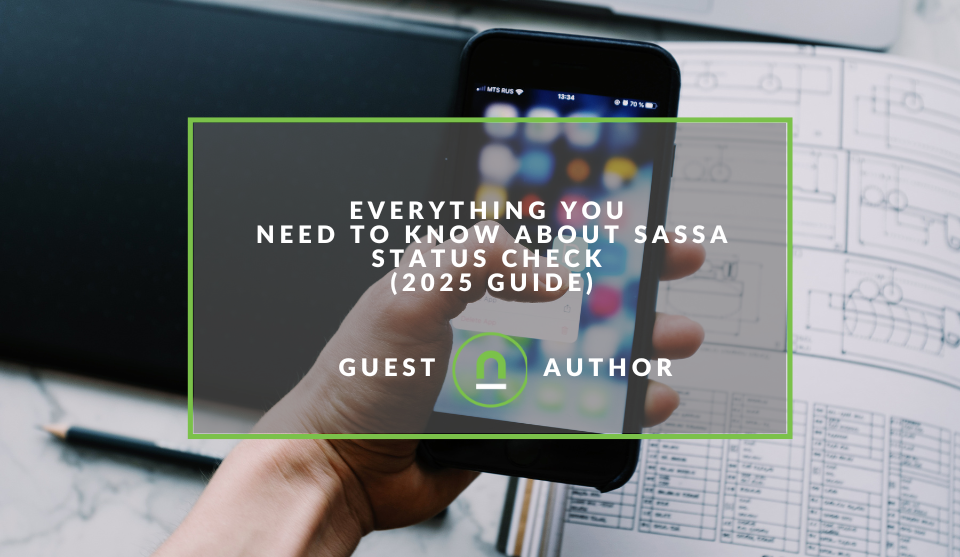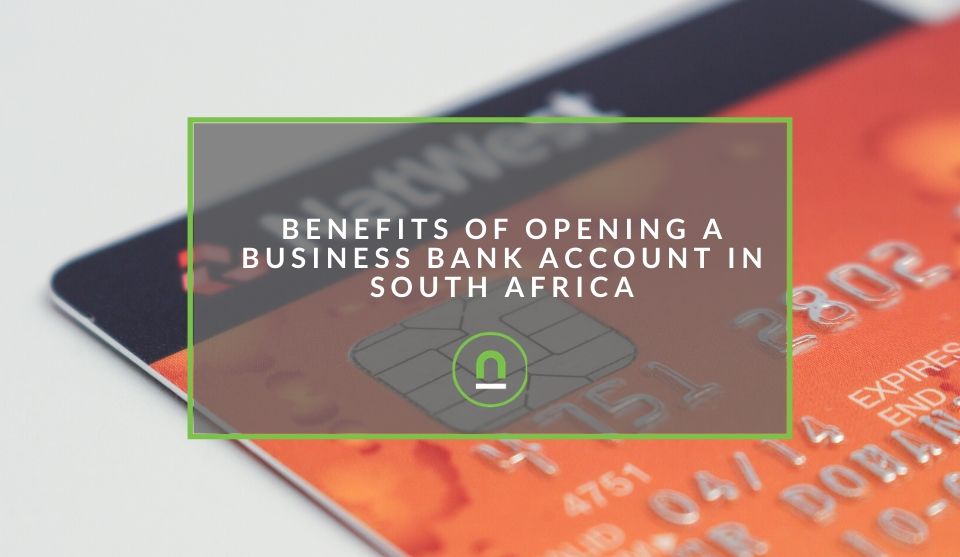Recent posts

Money Talks
Everything You Need to Know About SASSA Status Check
13 April 2025

Mind, Body & Soul
The Genetic Diversity of Cannabis Seeds
12 April 2025

Money Talks
How Small Businesses Can Leverage Blockchain Technology
02 April 2025

Industry Experts
Mastering Personalization in Digital Marketing
31 March 2025
Popular posts
Extravaganza
Trending Music Hashtags To Get Your Posts Noticed
24 August 2018
Geek Chic
How To Fix iPhone/iPad Only Charging In Certain Positions
05 July 2020
Extravaganza
Trending Wedding Hashtags To Get Your Posts Noticed
18 September 2018
Money Talks
How To Find Coupons & Vouchers Online In South Africa
28 March 2019
Benefits Of Opening A Business Bank Account In South Africa
23 April 2020 | 0 comments | Posted by Che Kohler in Money Talks
Entrepreneurship is a journey that comes with many lessons, especially if you're starting from scratch. As strange as it sounds, one of the parts of business many budding business owners don't think about it, is their finances. That's a strange statement to make off the bat right? I mean you're getting into business to make that moola, you're about that money. So how can you not care about your finances? Well, many small companies tend to mix business and pleasure and use a private account to manage their income.
Perhaps you've started a side hustle, or you've been running a small business for a while and don't see the need to add additional complexity to your life with more accounts and banking fees. I get that, we all like to opt for simplicity.
It may not apply to you now, but if you're planning to turn this business into your primary source of income long term and grow it into something bigger sooner or later, you will need a bank account for your business.
Starting a bank account for your business may seem like a small admin issue, but it comes with several advantages, some you will have access to immediately, and some will provide you with benefits in the long term.
So what are these so-called benefits you ask? Let's have a look and see why your small business should get a bank account.
1. To protect your identity
If you're using your private account to attach to invoices, on email or sent via text message, you open yourself up to compromising your account and a single point of failure. You could fall victim to identity theft or have your account details compromised and be subject to fraudulent activity.
Having a business account limits the damage to that account, and you still have the protection of your private account to live and operate under while you sort out the administrative and security issues with the bank.
2. Build a business banking relationship
Growing your business will require networking and support from financial situations, especially once your business beings to mature. You may want the assistance on finance and admin services like setting up a dedicated account to handle the payment of income, sales, or payroll taxes. These new features and benefits are added if you have a long-standing relationship with your business banker.
Additionally, you might also want to establish a relationship for credit purposes. Having a record with the bank could help you obtain a line of finance to purchase equipment or to expand your business, as you have been a reliable manager of capital in their eyes.
3. Multiple access
Depending on how your business is set up, should you have co-founders or other staff running payments you may want to provide separate credit cards or debit cards for the company. Having a business account will make it easy to add additional users to the account and have multiple cards with access to the account.4. Accepting credit card payments
One of the biggest reasons to get a business account is to link it with your bank or third-party credit card payment system. As we move to a more cashless society, more transactions are being done with cards and specifically credit cards. If a business cannot accept credit cards, they cut themselves off from a large population of potential clients. You can’t take credit cards through a personal bank account. It can only happen with a commercial account created in the name of a business entity.5. Improve the image of your business
In business perception and confidence matter and when sending out communication with sensitive information such as quotes and invoices using a personal account can send off a red flag. A dedicated business account, on the other hand, sends a message of legitimacy. Your business name appears on checks and other payment methods and gives clients and customers the sense that you’re a reputable business.6. Managing transactions
When you are just starting your business, it might make sense to run business transactions through a personal account. But as your business begins to grow, having to manage between business and private transactions can become an administrative pain. Having a separate business account will make it easier for you to manage your business. You can collect receipts in the bank account, as well as write checks for expenses.7. You want to deal with corporate or government contracts
Dealing with the private consumer, you may be able to get away with using a personal bank account. However, if you're going to start conducting business with other entities such as other businesses, financial institutions, corporates and government, you will need a business bank account.
Since a corporation is viewed as a separate legal entity from its owners, it must have a bank account in its name. Any transactions that you run through your private account for the business will technically be a separate activity.
That will have to be accounted for at the end of the reporting period, or when you go to file your business and personal tax returns. Enterprises want to avoid such administrative issues and would likely not want to work with you without a business account.
8. You want to sell your business
When a business is sold, the bank account will transfer to the new owners with the sale as it is the property of the company. The bank account is not only needed as a record of transactions, but also a way of documenting the performance of the business. Anyone buying your business will want to see a history of its financial operations.
They will, of course, inspect your financial statements, but that's only a starting point. Anyone wanting to buy a business will conduct proper due diligence to check if finances are in order. If transactions are mixed between private and business accounts, these could drive a buyer off purchasing your business.
Get your money matters in order
Have you started your business in South Africa? How was your experience setting up your finances? Let us know in the comments section down below.Contact us
If you would like to know more about marketing for your business then don’t be shy we’re happy to assist. Simply contact us
Are you looking to promote your business?
South African small business owners can create your free business listing on nichemarket. The more information you provide about your business, the easier it will be for your customers to find you online. Registering with nichemarket is easy; all you will need to do is head over to our sign up form and follow the instructions.
If you require a more detailed guide on how to create your profile or your listing, then we highly recommend you check out the following articles.
Recommended reading
If you enjoyed this post and have a little extra time to dive deeper down the rabbit hole, why not check out the following posts on small business finance.
- Alternative Funding Solutions a Small Business Needs to Know
- Common Finance Mistakes South African Small Businesses Make
- Where To Get Small Business Loans In South Africa
- 5 Tips for Funding Your Small Business
- 4 Types of Quick Business Loans for Immediate Funding
- How South African Small Businesses Waste Money
- How To Accept Direct Crypto Payments
Tags: Banking, Small Business
You might also like
Everything You Need to Know About SASSA Status Check
13 April 2025
Posted by Azhar Khanzada in Money Talks
A guide for 2025 for anyone looking to apply for a SASSA grant or would like to keep up to date with the status of your grant from application to red...
Read moreThe Genetic Diversity of Cannabis Seeds
12 April 2025
Posted by Alina Jones in Mind, Body & Soul
A look into the South African heritage of cannabis growing and how the country has taken the plant in terms of growing it into a viable industry & th...
Read more{{comment.sUserName}}
{{comment.iDayLastEdit}} day ago
{{comment.iDayLastEdit}} days ago
 {{blogcategory.sCategoryName}}
{{blogcategory.sCategoryName}}
